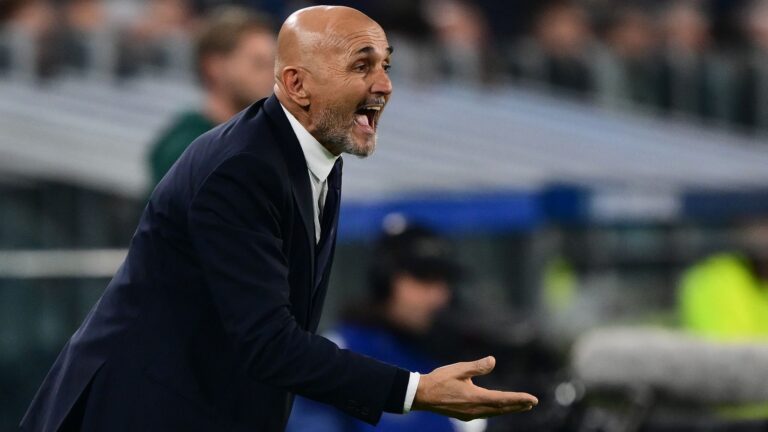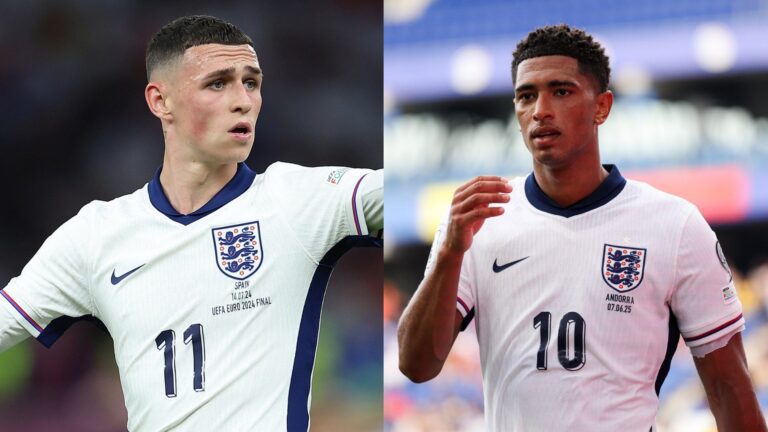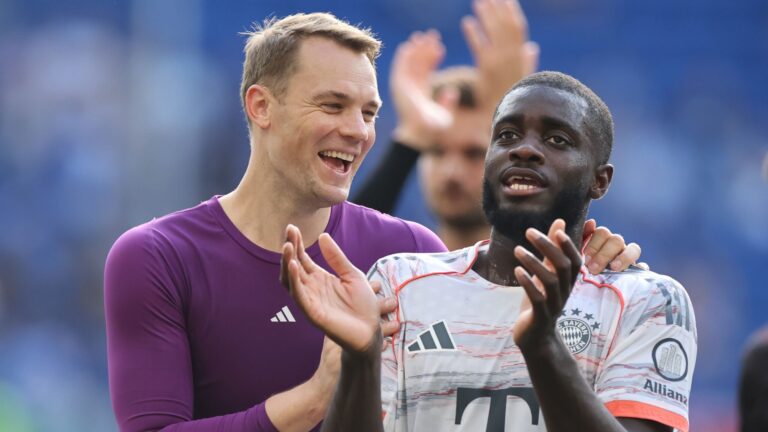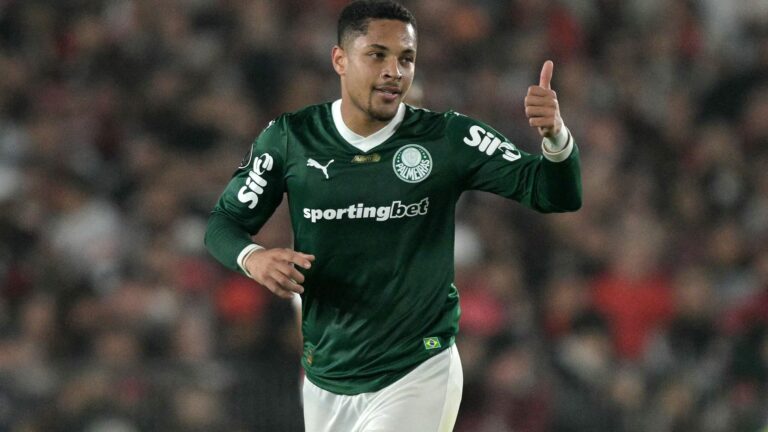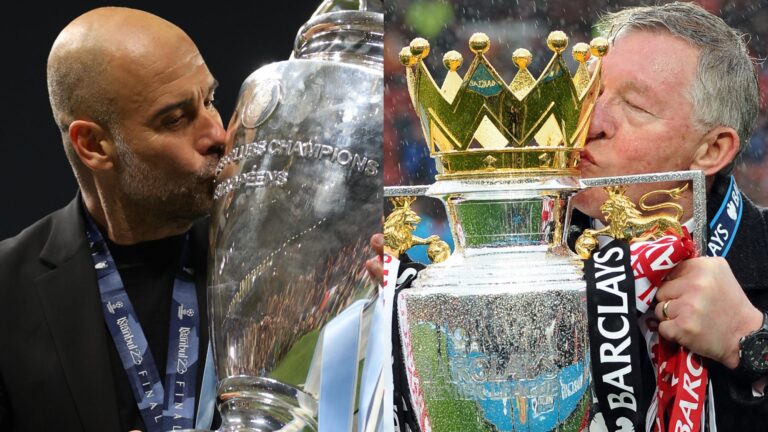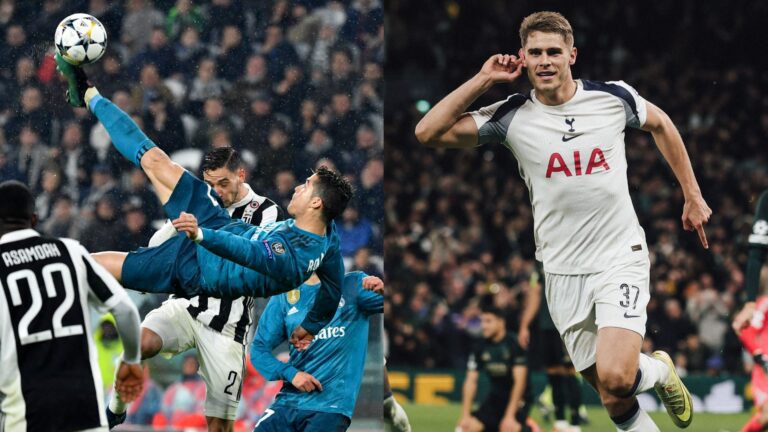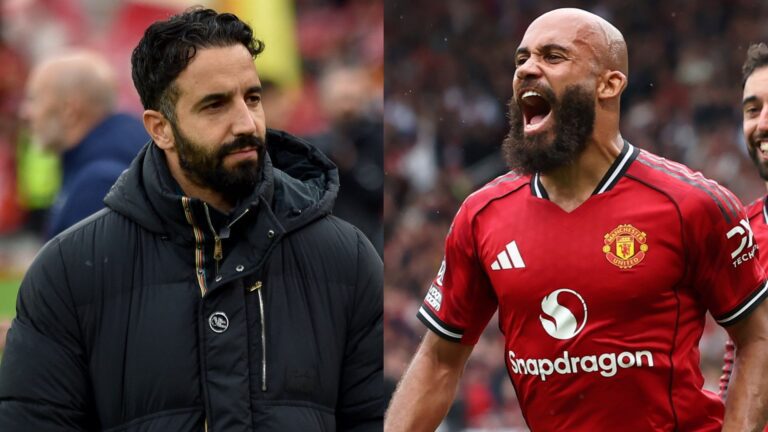


Unveiling the Tension: Vinicius Junior’s Emotional Response in El Clasico Showdown
In a moment that captured the intensity of Vinicius Junior‘s passion on the field, the Brazilian forward displayed visible frustration during Real Madrid’s clash with Barcelona, highlighting the high stakes of competitive football. This incident underscores the challenges managers like Xabi Alonso face in balancing player emotions with team strategy, especially in a pivotal match like El Clasico.
Vinicius Junior’s Frustration During Substitution
The Brazilian star was clearly taken aback when he was called to the sidelines in the 72nd minute, as Real Madrid sought to secure another goal against their rivals. His discontent was evident as he slowly left the Bernabeu field, gesturing with his arms and shaking his head in protest.
At just 25 years old, Vinicius Junior opted not to greet his coach upon being replaced by Rodrygo, choosing instead to exit directly to the tunnel rather than join the reserves. He eventually returned to watch the game’s final moments from the bench.
Escalating Tensions at the Match’s End
The game concluded amid rising conflicts, particularly after Pedri received a second yellow card for fouling Aurelien Tchouameni, sparking a fiery exchange involving Vinicius Junior and Barcelona players such as Alejandro Balde, Lamine Yamal, and Raphinha.
Real Madrid staff intervened to restrain Vinicius Junior, while Xabi Alonso worked to calm the atmosphere post-match. Although Alonso acknowledged the need for a discussion about the outburst, he emphasized that no serious issues exist between him and the player.
Alonso’s Insights on Diverse Player Dynamics
“Regarding Vinicius Junior‘s temperament, every team locker room features a mix of individual traits,” Xabi Alonso explained. “For now, we’re savoring the victory, and a follow-up talk is on the agenda.”
Challenges to Vinicius’s Starting Role
This season has seen Vinicius Junior‘s position as a fixed starter questioned, with him being omitted from the lineup in key games, including Real Madrid’s Champions League debut against Marseille and La Liga encounters with Getafe and Oviedo.
A similar reaction occurred during his removal in the 77th minute of a 2-0 triumph over Espanyol last month. Despite assisting Kylian Mbappe’s goal, Vinicius Junior expressed his irritation by discarding a water bottle and gesturing emphatically before engaging in a brief dialogue with Xabi Alonso.
Reflections on Player Performance and Strategy
“The one element Vinicius Junior lacked was a personal score,” Xabi Alonso reflected on the episode. “It’s accurate that he was substituted at his peak, and I might have delayed the change, but it was clear we required energetic substitutes to keep our grip on the game. He was eager to continue since he felt in top form.”
“Even Franco Mastantuono was reluctant to leave the pitch; he asked if I was pulling him, and I confirmed it. Vinicius Junior felt the same way-he wasn’t thrilled, nor was Franco. These moments are common, yet I’m thoroughly pleased with Vinicius Junior‘s efforts. The fixture list is intense, so we must press on.”
Looking Ahead to the Valencia Clash
Vinicius Junior is poised for another opportunity to boost his record of five goals and four assists in the 2025-26 campaign when Real Madrid hosts Valencia at the Bernabeu for their next home fixture.
Los Blancos have maintained a perfect record in their five home matches this season, bolstered by their recent heated victory over Barcelona, with their only defeat coming in a 5-2 loss to Atletico Madrid earlier.
Vinicius’s Track Record Against Valencia
In the previous season, Real Madrid fell 2-1 to Valencia at home, where Vinicius Junior netted the team’s sole goal. He has consistently performed well against Valencia in Madrid, finding the net in each of the last four La Liga home games against them under Carlos Corberan’s management.
Valencia’s Current Struggles
Valencia approaches this matchup on a five-game drought without a win, following their recent 2-0 setback at home to Villarreal.
The Context of Vinicius Junior’s Substitution
In the high-stakes world of football, player substitutions can stir up emotions, especially during a heated match like El Clásico. Vinicius Junior, the dynamic forward for Real Madrid, showed a visible reaction when he was substituted in their recent victory over Barcelona. This moment quickly became a talking point among fans and analysts, highlighting the pressures players face on the pitch.
Key Moments from the Match
El Clásico, one of the most anticipated fixtures in La Liga, saw Real Madrid secure a hard-fought win, with Vinicius Junior playing a pivotal role early in the game. His substitution in the latter stages raised eyebrows, as it appeared to catch him off guard. Experts suggest that such decisions are tactical, aimed at preserving player fitness or shifting momentum, but reactions like Vinicius’s can reveal the human side of the sport.
- Vinicius Junior’s Performance Highlights: Before his exit, Vinicius was instrumental in creating chances, showcasing his speed and dribbling skills that have made him a fan favorite. Stats from the match showed he covered significant ground, with multiple key passes and shots on target.
- Substitution Timing and Tactics: Coaches often make substitutions based on real-time data, such as fatigue levels or the need for defensive solidity. In this case, the move might have been to introduce fresh legs against Barcelona’s relentless attack.
This incident underscores how even in victory, the finer details of team management can lead to unexpected drama.
Xabi Alonso’s Insights as Real Madrid Manager
Xabi Alonso, known for his illustrious playing career at Real Madrid, has stepped into a managerial role and addressed the situation with Vinicius Junior in a measured way. In post-match comments, Alonso emphasized the importance of understanding “different personalities” within the squad, drawing from his own experiences as a midfielder who thrived under pressure.
Acknowledging Different Personalities in the Squad
Alonso’s remarks highlighted that not every player responds to substitutions in the same way. Vinicius Junior’s reaction, which included a frustrated gesture towards the bench, was seen by some as passionate and by others as unprofessional. Alonso, with his deep football IQ, pointed out that such moments are opportunities for growth rather than conflict.
- Alonso’s Exact Wording: In interviews, Alonso stated, “We have players with different personalities, and that’s what makes a team strong. Vinicius is young and full of energy; his reaction shows how much he cares.” This approach helps manage expectations and fosters a positive team environment.
- Benefits of Diverse Personalities: Teams like Real Madrid benefit from a mix of personalities-some players are vocal leaders, while others lead by example. Alonso’s strategy involves leveraging these traits to build resilience, especially after big wins like El Clásico.
- Long-Term Team Building: By publicly addressing the issue, Alonso demonstrates emotional intelligence, a key SEO-friendly keyword in modern football management discussions, as it relates to player psychology and performance optimization.
This perspective from Alonso not only diffuses potential controversy but also adds depth to how managers handle star players in the spotlight.
The Impact on Player Development and Team Dynamics
Substitutions and their aftermath can significantly influence a player’s development, as seen in Vinicius Junior’s case. Alonso’s acknowledgment of “different personalities” serves as a reminder that football is as much about mental strength as physical prowess. For young talents like Vinicius, these experiences can be pivotal learning moments.
How Reactions Affect Morale
Player reactions to decisions like substitutions can ripple through the team, affecting overall morale. In Real Madrid’s case, maintaining unity is crucial for sustained success in competitions like La Liga and the Champions League.
- Positive Outcomes from the Incident: This event could lead to constructive dialogues between players and coaches, helping Vinicius refine his emotional control while staying true to his competitive spirit.
- Broader Implications for Football Management: Keywords like “substitution reaction” and “team dynamics” are increasingly relevant in SEO contexts, as fans search for insights on how top managers like Alonso navigate these challenges.
- Examples from Past Seasons: Historically, players like Cristiano Ronaldo have had similar reactions, which were managed through open communication, leading to better performances down the line-much like what Alonso might be aiming for here.
Strategies for Handling High-Pressure Situations
Effective managers use tools like video analysis and player feedback to address reactions swiftly. Alonso’s approach aligns with best practices, ensuring that “different personalities” contribute to a winning culture.
- Key Tactics for Managers: Incorporate regular team meetings to discuss emotions and tactics, monitor player workload to prevent fatigue-related frustrations, and use data-driven insights for substitution decisions.
- Vinicius Junior’s Growth Path: As a rising star, Vinicius stands to gain from Alonso’s guidance, potentially improving his on-field decision-making and leadership qualities.
These elements not only enhance team performance but also resonate with audiences searching for “Xabi Alonso football insights” and “Real Madrid player management strategies.”
In exploring these aspects, it’s clear that incidents like Vinicius’s substitution are integral to the narrative of football, offering valuable lessons for fans and aspiring managers alike. By focusing on empathy and strategy, leaders like Alonso ensure their teams remain competitive and cohesive. (Word count: 652)


